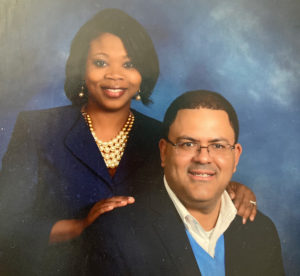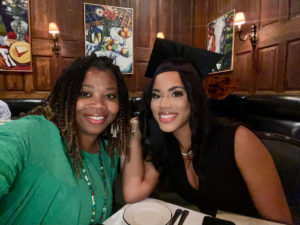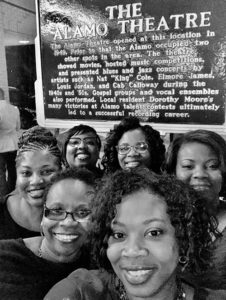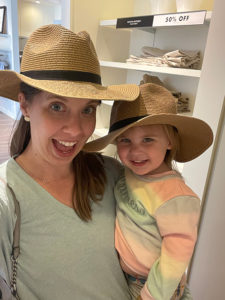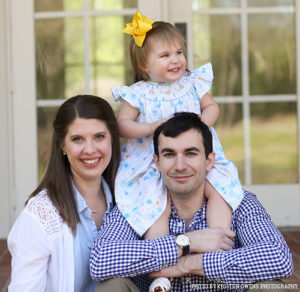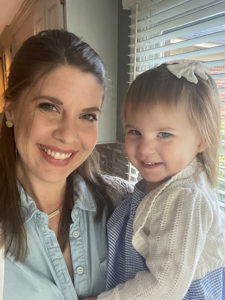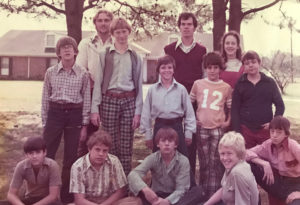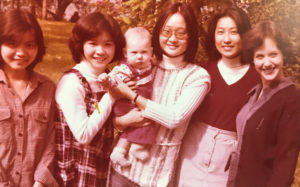By KATIE EUBANKS
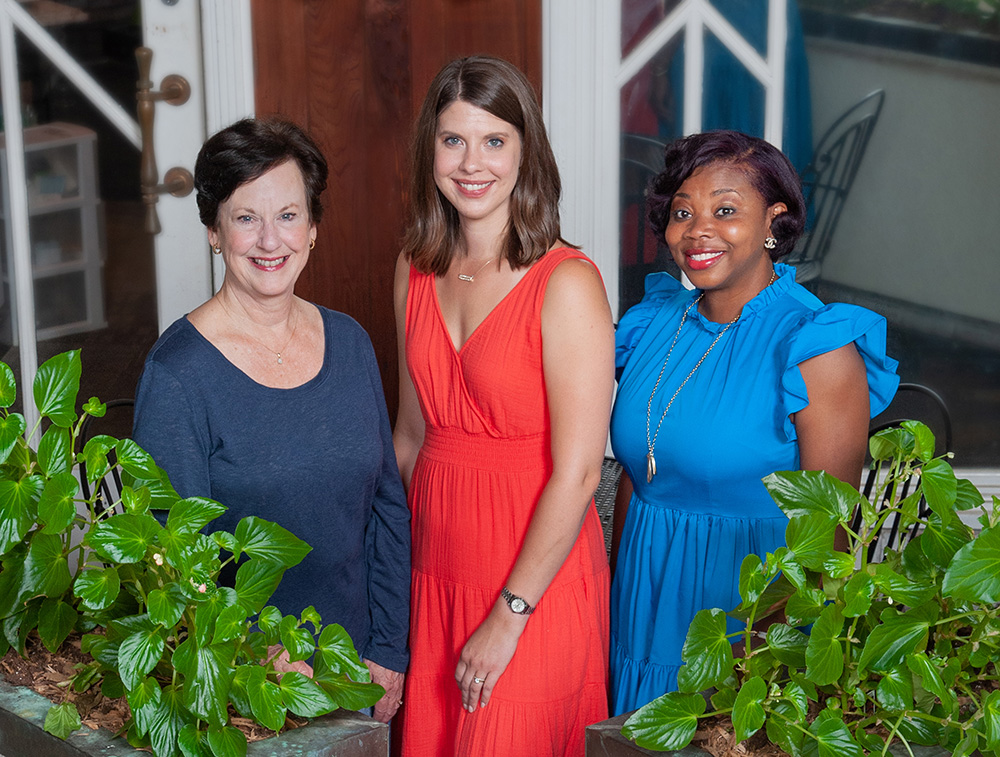
From left: Lisa Owens of Cornerstone Counseling in Flowood; Krista Woods of Krista Woods Counseling in Ridgeland; and Leona Bishop of Count It All Joy Counseling and Consulting Services in Jackson.
MCL Editor Katie Eubanks recently sat down with three licensed professional counselors (LPCs) who love Jesus and want to help people live by His design through mental health — whether they’re struggling with everyday challenges, habits and hang-ups, depression and anxiety, or serious mental illness. Whatever you are going through, God can heal you. But He just might want to do it through therapy!
Leona Bishop owns Count It All Joy Counseling and Consulting Services in Jackson, where she focuses on mental wellness — helping people with issues like depression and anxiety before they become crises. She is a certified clinical trauma professional.
Krista Woods owns Krista Woods Counseling in Ridgeland, where she specializes in perinatal mood and anxiety disorders and other issues related to motherhood. She also has experience working with children ages 3-18.
Lisa Owens is a counselor at Cornerstone Counseling in Flowood, where she frequently works with couples and families in addition to individuals. She is certified as a clinical mental health therapist.
This interview has been edited for clarity and length.
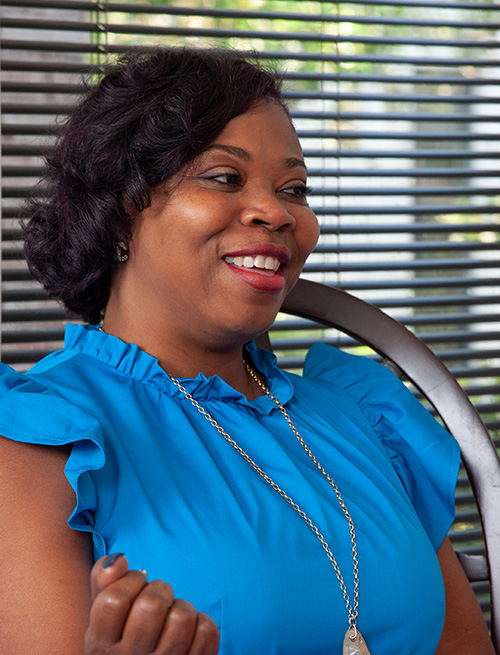
Leona Bishop of Count It All Joy in Jackson
Katie Eubanks: How did each of you get into the field of counseling?
Leona Bishop: Growing up, I always wanted to be helpful. … I was with a friend registering for college at Delta State University, and I noticed they had a counseling program. I have no regrets. … I consider it a ministry of helping other people, and of being a willing vessel.
Krista Woods: Through the dance program (at Belhaven University), I got involved in (Reformed University Fellowship), and after I graduated, I became an intern there. Through that, and through just being mentored by my campus minister and some other people … I was drawn to counseling and thought it might kind of be a good segue to join all my gifts.
I have always been a people person. (And) I wanted to help people heal from anything that they were dealing with.
Lisa Owens: (Early in our marriage, we) went with the Presbyterian church over to Taipei, Taiwan, and worked at Christ’s College. … During that time, I would begin to counsel my fellow colleagues. They would just come to my door after hours.
(After coming home) I found myself counseling while I was in the business world. I was a dental assistant, and I was in commercial sales. … I found myself enjoying getting to know people and just in conversation trying to help them.
So after I started having grandchildren … I (got) my master’s in marriage and family counseling. It’s been about five years now. I love it. It’s probably my favorite career. (laughs).
- Leona Bishop and her husband, Roger
- Leona with her daughter, Leah
- Leona with her sisters
KE: What did y’all grow up learning or believing about mental health, and how has that changed?
LB: In my community, people who probably received mental health services probably had an illness … mostly the diagnoses were some of the harder ones like schizophrenia. And that’s where the stigma showed up. Nobody wanted to be ‘crazy.’
Growing up, it was more, ‘Pray about it.’ … Today, people have (realized) that taking care of our mental health is as important as taking care of our physical health. If counseling can be part of your plan for mental wellness, take advantage of it.
Prayer still works and God has equipped us with the Counselor who helps. What’s exciting is that we now also have professionally trained counselors who are Christians, who can help us learn better strategies to manage everyday stressors.
KW: Growing up … there was a view (that) you had to have major problems if (you went to therapy). But counseling is a great way to navigate everyday challenges, no matter how small they may seem.
My great-grandmother had — a ‘nervous breakdown’ is what they called it in the 1920s. She probably had a panic attack. And they put her in an institution. Nowadays they would’ve sent her to a psychiatrist and referred her to a counselor to help her manage her anxiety.
What I would want people to know is that asking for help and not having it all together means that you’re human, and that we all are human, and that we’re not perfect. And we don’t have to be perfect. For those who are believers, we have an Advocate who was perfect for us. And for the unbeliever, they are also valuable, and they are loved, and there’s a space for them to be known.
LO: Most of my clients come in not really understanding what we’re going to do, so I have to explain, we are going to let you share your story and help you with anything that you feel is important.
Most of the things we deal with are just normal things. … We do live in a more complicated world now, (but) that doesn’t mean that a lot of it can’t be looked at and worked on.
I have seen a lot of good things from regular therapy.
KE: Without identifying the clients, can y’all share any success stories?
LB: I remember working with this one lady, and after gathering more of her history … we dealt with something that she didn’t even realize was affecting her. It was an old memory that she didn’t realize she was carrying. She said it was like a whole burden lifted off her shoulders.
When we address (a client’s) negative belief about themselves (based on past experiences), we replace that with a positive belief. … It’s so powerful just to see that transformation. And it’s great when we incorporate their faith and who God says they are.
KW: I work with moms primarily — prenatal, postnatal, birth trauma, infertility issues, and a lot of what moms go through in silence.
I love being able to walk through that with them. I’ve walked with women who’ve struggled with having a baby, and the loneliness they feel, and the isolation, and the questioning, ‘When are you going to have a baby?’
Being able to see the healing that happens from someone being present in their experience and being present to hear them … I love working with moms.
LO: Couple counseling and marital health is one of my priorities …. I don’t always feel 100 percent successful, but I know I am doing what I’m supposed to be doing — doing my part to try to deal with very complicated not only individual issues but couple issues, as well as family issues.
I do feel that I’ve had some great fulfillment in that area.
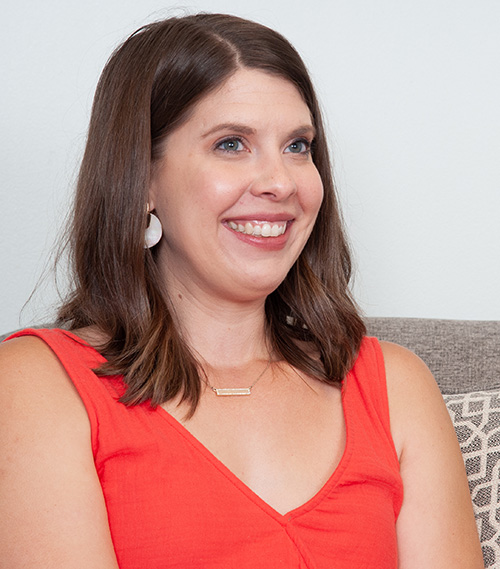
Krista Woods of Krista Woods Counseling in Ridgeland
KE: How has being a counselor grown your faith?
LO: God shows up all the time (laughs), and I’m amazed. My faith grows every day because of the honor of being part of His work.
LB: I just realize I have nothing. I wish my magic wand worked, but it doesn’t. I have nothing, and if it wasn’t for God working through me … we wouldn’t get very far.
KW: One of my professors from graduate school said that when you walk into a therapy room, it’s holy ground, whether you’re with a believer or a nonbeliever — because as a believing counselor walking in, I have the Holy Spirit.
I love being able to work with believers … even their relationship with the Lord and how their life experience has maybe affected their view of who God is, and helping them maybe work through those doubts, or griefs and losses.
And I love knowing I can sit with someone who doesn’t share my beliefs, and I can show them the love that I believe Christ has shown me, and that the Holy Spirit inside me is a resource of acceptance and care that’s beyond my own abilities.
I can’t share the gospel with them, and also our licenses don’t allow us to — but just our presence, and Christ was that for people.
- Krista Woods — pictured here with her daughter, Genevieve
- “I had a baby during COVID and was also a resource for other people. (That) was a new level of balance for me,” says Krista Woods — pictured here with her daughter, Genevieve, and husband, Dan — on being a mother and therapist.
- Krista and Genevieve
KE: Have y’all ever felt that tug — ‘This person needs the Lord, and I can’t say anything!’ How do y’all handle that?
KW: There’s times when I go, (Jesus) would solve some of this for them — a lot of it.
(But) I can just be a consistent person they can trust. And maybe through that trusting relationship that they’ve never, ever had before … who knows what seeds are planted.
LO: It’s hard for me to just sit there and listen without wanting to provide a solution. And of course the Lord is my resource. So yes, our licenses won’t allow us to try to convert someone. That’s not our job. Our job is to help people wherever they are, and hopefully provide tools that will get them to a better place.
So I’m not just solution-focused, but I do like to provide an action plan. Because I feel like people are coming to me and wanting help. I don’t want them to leave without getting it.
LB: One of the things I do on my intake forms is ask for (the client’s) religious preference, and would they like it incorporated in their treatment.
Sometimes you go home and think (about a client), ‘You need Jesus!’ But I think those are the cases where I pray a little harder. … It doesn’t mean I can’t work with them .… I think I just build from the point of people wanting to do better.
If they do have questions (about Christianity), because of past hurts, I can be there as a Christian to help answer. If they ask. I can’t push it off on you, but if they ask questions — if they open that door — I can walk through it.
KW: If the door is opened or the window is lifted, you can walk through it.
LB: And you can bring Jesus with you.
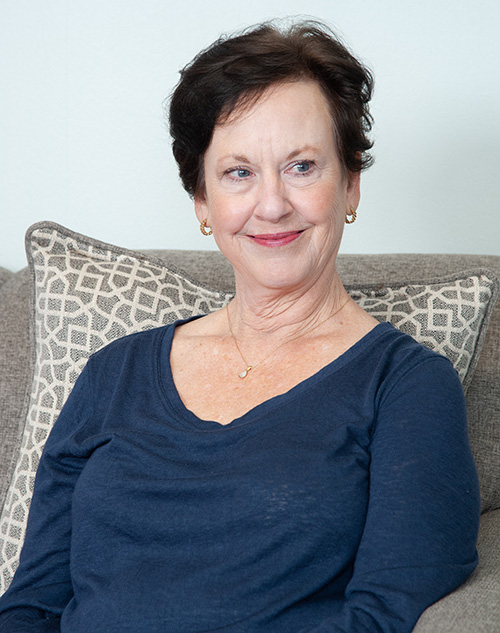
Lisa Owens of Cornerstone Counseling in Flowood
KE: A lot of people don’t want to tell people their junk because they’re afraid you’re going to judge them.
LB: That’s part of the initial language I bring up with clients: This is a non-judgmental, safe environment. There’s nothing you can say that’s going to make me go, ‘Oh, wow!’ I’m just going to nod. I’m going to acknowledge you and validate you.
I’m always saying, whatever you say within these four walls (or on this call) stays here. Unless you tell me you’re hurting yourself, someone else is hurting you, or you’ve got a plan to go out and hurt another person.
KE: What’s been the biggest surprise in your counseling careers?
LB: There is an inventory that I do with most of my clients called the ACEs, which stands for adverse childhood experiences. They ask questions related to abuse or neglect and things like that. Ten questions are asked. When I first started doing it, I had someone with a very high ACE score, I think it was like an 8 or 9, and I called my psychiatrist friend like ‘ … What am I going to do?’
I am so happy I got my trauma training … (because) we all have these experiences in life. Our brain is, what is it? We can’t necessarily regenerate those cells, but we can — what is the word I’m trying to use?
KW: We have neuroplasticity. We can change our brain, and we can change the pathways in our brain.
LB: Yes, that’s it.
LO: And we have seen resilience and recovery, I would think, more than not. Because I think most people do want to pull through. (But) they need to hear the message that there’s help, and there’s hope.
KW: One thing I didn’t realize was how pervasive perinatal mood and anxiety disorders are. 1 in 7 pregnant and postpartum women will experience a perinatal mood or anxiety disorder during pregnancy, postpartum, or post-loss. A woman can have depression, anxiety, OCD or bipolar disorder during pregnancy or postpartum, or PTSD or psychosis postpartum.
- Bill and Lisa Owens (back right) were house parents to teen boys at Palmer Home in Columbus, Mississippi, while Lisa was finishing her degree at Mississippi University for Women.
- Lisa (far right) with Mary Lisa and friends in Taipei — where Lisa found herself informally counseling fellow teachers who came to her door after hours.
KE: How do y’all take care of your own mental health outside of work?
LO: I think healthy relationships ourselves, and of course if we need our own therapist, or mentor, or personal friend.
If we are doing all our work at work but nothing (privately), then we’re missing out on really the best part. Because yes I love my work, but I love my personal life too. … I want to honor the Lord whether I’m working or playing.
We are going to get burnt out if we’re not careful …. I’m a workhorse, and I have to constantly deal with my schedule so that I do not burn out.
LB: One of the things I often teach my clients is about their own emotional competence. I talk about zones. What color zone are you in? … When I’m calm, (I’m) in the green zone.
When you know what it’s like to be calm, and then you shift … you need to know what to do. So I give my clients a list of strategies for each zone.
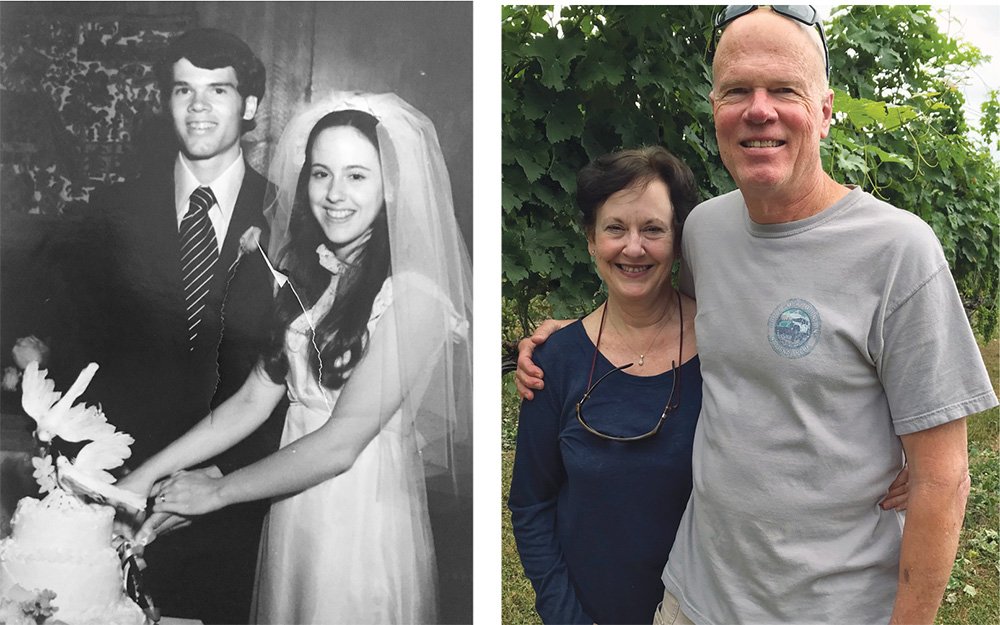
Lisa has been married to Bill Owens since 1974.
Whatever I’m teaching, I have to follow it myself. I have to slow down and listen to my body when it’s saying, ‘Oh girl, you’ve got a whole island around you.’ Because that’s what I look like when I’m stressed out. … I create little piles around myself. It’s just a bunch of tasks that need to be done.
I connect with family, I connect with friends, and I try to plan great trips. I’ve figured out that’s what I like now. (And) when I say play, I still have a set of jacks from back in the day. So I play jacks, and I keep a yo-yo in my drawer — and bubbles.
KW: Work/life balance is huge, and knowing when I am depleted. I had a baby during COVID and was also a resource for other people. (That) was a new level of balance for me.
Even knowing times of the year when I have less energy. In wintertime, there’s less sun, it’s colder, the days are shorter — (so) I know my client load will be lower, so that I am not staying at work later, so I won’t be as tired, so I can have more time with my daughter.
(And) counseling for myself, I will always do that as needed.
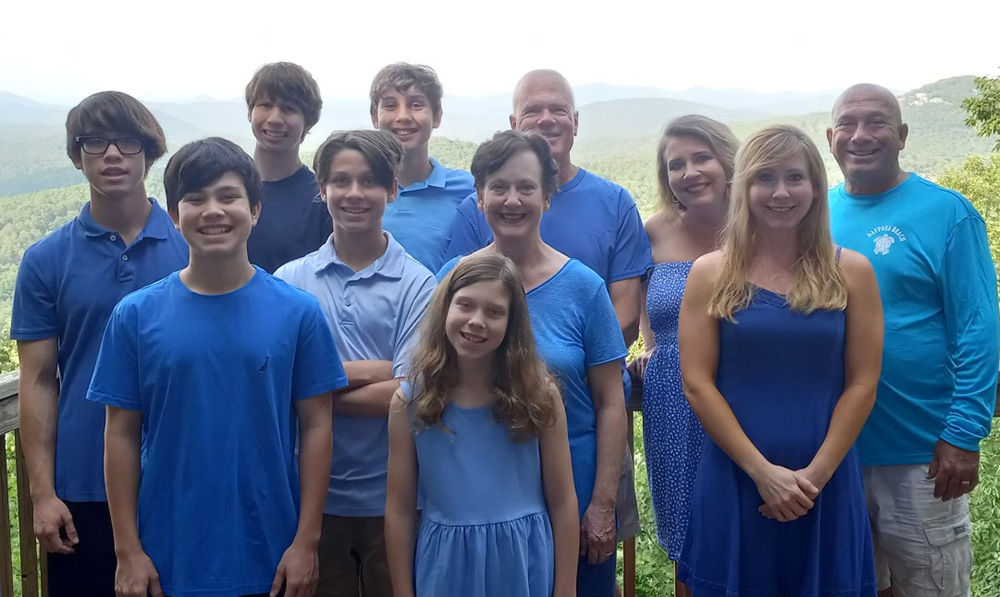
Lisa and Bill (center) are the proud parents of two daughters and grandparents to six grandchildren.
KE: How would y’all encourage someone who’s considering counseling but isn’t sure?
LO: I think try it once and see if it’s a good fit, and find out what it really is. (And) sometimes you have to try several therapists before you find the fit that works for you. And that’s OK.
LB: Don’t give up if the first time you go, it’s not as successful as you thought it would be. … Just don’t give up. Because it’s a whole process.
And the other thing is, counseling is not a place you go because you are ‘crazy.’ It’s really, this world is crazy!
Sometimes it’s beneficial to see a therapist to learn additional tools to add to your toolbox so you can heal and be more free. … Yes, those chapters of your life happened, but how do you want the rest of your book to finish?
KW: I would want to encourage those who might be on the fence that they don’t have to have it all together when they walk in the door.
(I’ve) had people come in who say, ‘I was told I needed to come.’ And they’re like, ‘I don’t know why I’m here.’ OK, we’ll figure it out together.
Give it a chance. Give it time.

